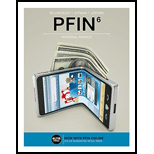
To discuss: The basic principles and importance of property insurance, including types of exposure, indemnity and co-insurance
Explanation of Solution
Some of the basic principles of property are as follows:
Principle of utmost good faith: This principle states that the insured and the insurer are required to exchange true and complete information to each other.
Principle of Contribution: This principle states that if different insurance companies are providing coverage to the same property, then the actual amount of loss is divided proportionately among all the companies providing insurance.
Principle of Subrogation: In this principle, the insurance company posses the legal rights of the property insured.
Importance of property insurance:
Property insurance is crucial because it provides protection against different perils and calamities like windstorm, fire, vandalism, theft to the persona and real properties. An individual must give equal importance to property insurance as one gives to health and life insurances.
Types of exposure:
- Exposure to property loss: When an individual is exposed to the physical loss of the property, this is exposure to property loss. Most of the property insurance contracts identify the perils that are the reasons behind the loss and the property covered.
- Exposure to liability: When an individual is exposed to the losses through liability, this is known as exposure to liability. Some of the examples of liability exposure can be driving a car, being careless about some professional duties and others.
Principle of Indemnity: According to the principle of indemnity, the insured will not get compensated more than the economic loss he/she incurred. The objective of this principle is to get protected from the dishonest policyholders who try to get extra advantage from the insurance.
Co-insurance: A provision that requires the holder of the policy to purchase the insurance of an amount that is equivalent to the specified percentage of the property’s replacement value. This is co-insurance. This is to help insured bear the loss through the co-insurance.
Want to see more full solutions like this?
Chapter 10 Solutions
PFIN (with PFIN Online, 1 term (6 months) Printed Access Card) (New, Engaging Titles from 4LTR Press)
- Choose a property and liability insurance agent and company, and settle claims.arrow_forwardWhat will making a prepayment for insurance have the effect of?arrow_forwarddescribing how the element of "risk" factors into the concept of insurance. cite a specific type of insurance policy and indicate how risk will play into the issuance of the insurance policy.arrow_forward
- The beneficiary of a life insurance policy is ________________________.arrow_forwardWhat type of information is entered for insurance and why is insurance important? please answer this on your own wordsarrow_forwardWhich of the following types of insurance does NOT involve a contract with an external party? a. self insurance b. directors and officers insurance c. property insurance d. life insurancearrow_forward
 Pfin (with Mindtap, 1 Term Printed Access Card) (...FinanceISBN:9780357033609Author:Randall Billingsley, Lawrence J. Gitman, Michael D. JoehnkPublisher:Cengage Learning
Pfin (with Mindtap, 1 Term Printed Access Card) (...FinanceISBN:9780357033609Author:Randall Billingsley, Lawrence J. Gitman, Michael D. JoehnkPublisher:Cengage Learning

